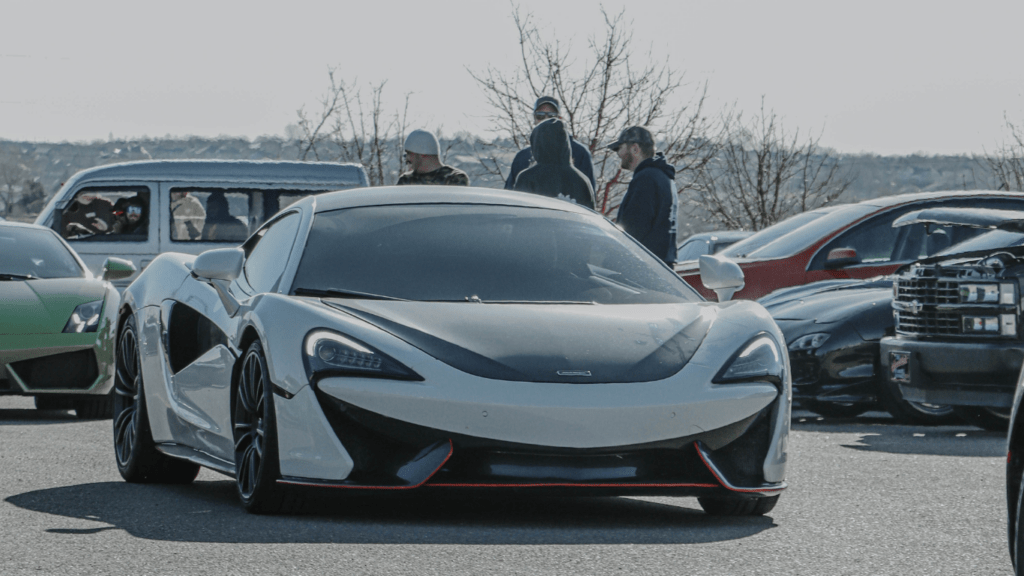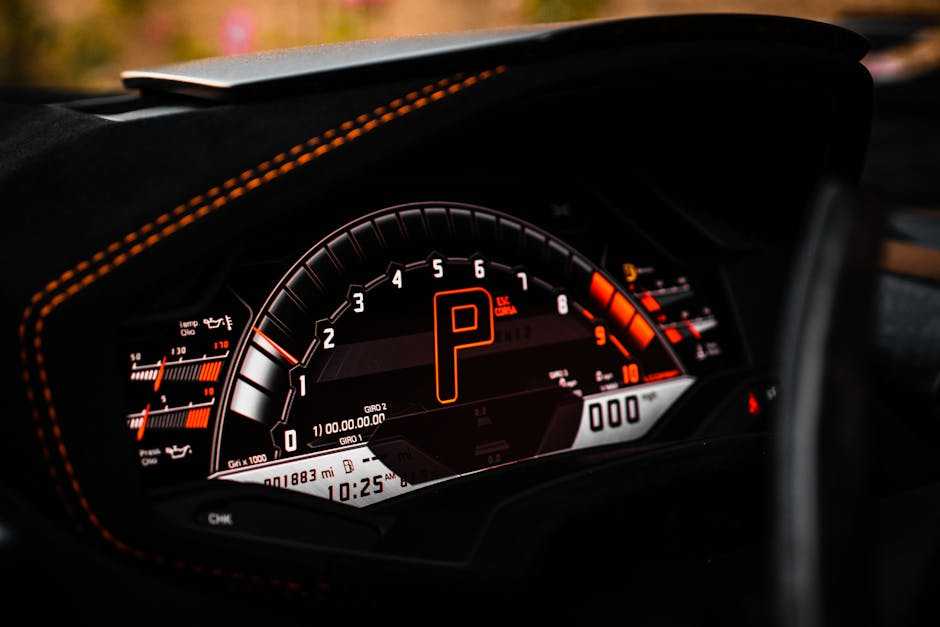The Rise of Luxury Electric Vehicles
Luxury electric vehicles (EVs) have gained traction in recent years, merging opulence with sustainability. These vehicles offer top-tier features, eco-friendly powertrains, and cutting-edge technology. Traditional luxury automotive brands, like Porsche and Mercedes-Benz, have entered the EV market, enhancing their portfolios with electric models.
Increased Consumer Demand
There’s a rise in consumer demand for luxury EVs, driven by growing environmental awareness. Buyers want high-performance cars without compromising on luxury or contributing to pollution. According to a 2022 McKinsey report, the luxury EV market is projected to grow by 14% annually over the next decade.
Technological Advancements
Advanced battery technology now enables longer driving ranges and faster charging times. For example, Tesla’s Model S offers a range of up to 396 miles per charge. Luxury EVs often feature state-of-the-art infotainment systems, autonomous driving capabilities, and personalized driving experiences.
Government Incentives
Many governments offer incentives to promote the adoption of electric vehicles, including tax credits and rebates. The US federal tax credit for EV purchases can save buyers up to $7,500. These incentives make luxury EVs more accessible to a broader audience, further driving their popularity.
Sustainable Materials
Luxury EVs increasingly use sustainable materials in their construction. Brands like BMW and Audi incorporate recycled plastics and eco-friendly leather alternatives in their interiors. This innovation appeals to environmentally-conscious consumers and aligns with global sustainability trends.
Case Studies of Luxury Brands
Several luxury automotive brands stand out in the electric vehicle market:
- Tesla: Pioneered the luxury EV segment with models like the Model S and Model X.
- Porsche: Introduced the Taycan, offering performance and luxury without compromise.
- Mercedes-Benz: The EQS exemplifies the brand’s commitment to electric luxury.
- BMW: The i7 blends traditional luxury with cutting-edge electric technology.
- Audi: The e-tron series showcases Audi’s dedication to sustainability and innovation.
Market Impact
The rise of luxury EVs impacts the entire automotive industry. Traditional luxury carmakers now compete with tech-centric companies. This competition fosters innovation, driving advancements in battery technology and sustainable practices. The luxury EV segment sets new standards for performance, luxury, and environmental stewardship.
Consumer Benefits
Owning a luxury EV offers numerous advantages:
- Performance: High torque and instant acceleration enhance driving experiences.
- Cost Savings: Lower fuel costs and reduced maintenance expenses.
- Eco-Consciousness: Reduced carbon footprint compared to gasoline cars.
- Incentives: Tax credits and rebates make purchasing more attractive.
Luxury EVs embody the future of high-performance, eco-friendly automotive technology.
Technological Innovations Driving Performance
Luxury EVs are pushing the boundaries of both technology and performance. I’ll uncover key areas where technological advancements are setting new standards for high-performance electric vehicles.
Battery Efficiency and Longevity
Battery efficiency and longevity are crucial for enhancing EV performance. Cutting-edge battery technologies aim to extend life and range without compromising performance. Solid-state batteries, for instance, offer higher energy densities than traditional lithium-ion batteries. These batteries can store more energy, enabling vehicles to travel longer distances on a single charge.
Manufacturers like Tesla and Porsche are investing in these technologies to ensure their luxury EVs meet the demands of high-performance driving. Additionally, advances in thermal management systems help maintain optimal battery temperatures, boosting efficiency and longevity.
Advanced Infotainment Systems
Advanced infotainment systems are core components of modern luxury EVs. These systems integrate seamlessly with the vehicle’s overall design, providing drivers and passengers with an immersive experience. High-resolution touchscreens, voice recognition, and augmented reality (AR) displays are now standard in luxury EV infotainment systems.
Tesla’s Model S, for example, features a 17-inch central touchscreen, offering intuitive control over various vehicle functions. Audi’s MMI system incorporates AR to project navigation information onto the windshield, enhancing safety and convenience. These advancements ensure that luxury EV drivers enjoy a state-of-the-art multimedia experience.
Autonomous Driving Capabilities
Autonomous driving capabilities are transforming the way we view vehicle performance. With AI and machine learning, luxury EVs can now offer advanced driver-assistance systems (ADAS) and full self-driving features. These technologies enhance safety, comfort, and efficiency.
Tesla’s Autopilot and Full Self-Driving (FSD) systems are leading the way, providing capabilities such as automatic lane changes, self-parking, and traffic-aware cruise control. Mercedes-Benz’s Drive Pilot offers Level 3 autonomy, allowing the vehicle to handle most driving tasks under certain conditions. These innovations are redefining the standards for performance and convenience in luxury EVs.
Market Leaders and Their Offerings

High-performance luxury electric vehicles boast significant advancements. Leading manufacturers are setting new benchmarks in the industry.
Tesla and the Plaid Model S
Tesla’s Plaid Model S represents a leap in electric vehicle performance. With a reported range of 396 miles and 0-60 mph acceleration in 1.99 seconds, it redefines speed and efficiency in the luxury EV segment. Tesla integrates its Autopilot system, offering advanced autonomous driving features that enhance safety and convenience. The Plaid Model S employs a tri-motor setup, producing peak power of 1,020 horsepower, showcasing Tesla’s commitment to pushing technological boundaries.
Porsche Taycan Series
Porsche’s Taycan series marries performance with luxury. The Taycan Turbo S accelerates from 0-60 mph in 2.6 seconds and delivers a range of up to 227 miles per charge. Porsche’s 800-volt architecture allows for rapid charging, reducing downtime during long trips. The Taycan’s interior features high-quality materials and advanced infotainment systems, exemplifying Porsche’s attention to detail and commitment to driver experience.
Lucid Air
Lucid Motors’ Lucid Air sets a new standard for luxury EVs. Offering a range of up to 520 miles, it surpasses many competitors in efficiency. The Air’s dual-motor system delivers up to 1,111 horsepower, achieving 0-60 mph in 2.5 seconds. Lucid’s cutting-edge DreamDrive system incorporates 32 sensors for comprehensive autonomous driving features. The interior features sustainable materials, advanced display technology, and extensive rear-seat space, reflecting Lucid’s emphasis on comfort and sustainability.
Industry Challenges and Solutions
The future of high-performance luxury electric vehicles (EVs) faces several hurdles. Addressing these challenges is crucial for sustained growth and consumer adoption.
Charging Infrastructure
Providing a robust charging network remains a significant challenge. Luxury EVs demand fast and reliable charging to meet consumer expectations. Many urban areas lack adequate high-speed charging stations, limiting the convenience and appeal of EVs.
Solution: Investment in charging infrastructure is necessary. Companies like Tesla and Electrify America are expanding their networks, ensuring wider coverage. Governments are also incentivizing the installation of public chargers, further enhancing accessibility.
High Production Costs
Producing high-performance luxury EVs incurs substantial costs. Advanced batteries, cutting-edge technology, and premium materials contribute to high production expenses, impacting retail prices.
Solution: Economies of scale and technological advancements can reduce production costs. As battery technology evolves, prices are dropping, making it feasible to produce luxury EVs more affordably. Manufacturers are also exploring innovative materials and automated production techniques to lower expenses.
Consumer Adoption
Convincing consumers to switch from traditional gasoline vehicles to luxury EVs poses a challenge. Concerns about range, charging times, and overall performance affect adoption rates.
Solution: Education and incentives play key roles. Showcasing the benefits of luxury EVs, such as improved performance and sustainability, can shift consumer perceptions. Additionally, government incentives, such as tax credits and rebates, make luxury EVs more attractive to potential buyers.
Predictions for the Future
The future of high-performance luxury electric vehicles is exciting and full of possibilities. Industry trends and potential game-changers paint a vivid picture of what lies ahead.
Emerging Trends
Luxury EVs are evolving quickly with several key trends shaping their future. Advanced battery technology is at the forefront, with companies investing heavily in solid-state and lithium-sulfur batteries for better range and safety. For instance, QuantumScape is researching scalable production methods for solid-state batteries expected to increase energy density by 50%.
Sustainability trends are gaining steam, with manufacturers using recycled materials and vegan interiors to appeal to eco-conscious consumers. Companies like BMW are pioneers in using recycled components in their i series EVs. Infotainment systems are becoming more sophisticated, integrating artificial intelligence for personalized experiences. Tesla’s AI-driven systems offer user-specific navigation and media choices, enhancing driver interaction.
Potential Game-Changers
Certain advancements can radically alter the luxury EV landscape. Autonomous driving is one, with major improvements expected in the next decade. Companies like Waymo and Tesla are at the cutting edge, working on driverless technology that could transform personal and commercial transport. Tesla aims to perfect Full Self-Driving capabilities, which would massively reduce the need for human intervention.
Wireless charging and ultra-fast charging technologies are other potential game-changers. Automakers are exploring wireless solutions that could eliminate the need for plug-in stations. For example, WiTricity is developing wireless charging pads that transfer power magnetically when a vehicle is parked over them.
Government regulations and policies can also shift the market dramatically. Support for green initiatives through subsidies and tax incentives is crucial. For instance, as the EU tightens emissions regulations, luxury brands may accelerate their EV development programs to stay compliant, boosting market growth.
Understanding these trends and game-changers helps in foreseeing a transformative era for luxury electric vehicles, driven by innovation and sustainability.



 Editorial Director
Editorial Director
